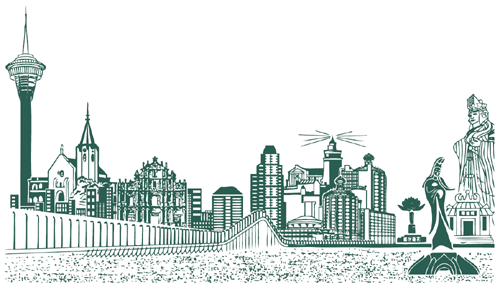City keeps writing its personal success story
The Chinese population has a history of taking charge of its own affairs, and that tradition is alive and well. Aska Cheong reports


Bridging the gap
In addition to societal work, the associations in Macao act as a bridge between the city and the mainland by arranging exchange tours for Macao locals. Fu's organization is one of many that frequently organize such activities to improve understanding of the country.
They may not have in-depth interactions on the mainland, but they will experience the latest developments in the country and reflect on the situation in Macao, according to Fu.
"Macao people have developed a sense of superiority as a result of the city's fast economic development over the past 10 years." Fu added.
"After visiting the mainland by themselves, they are surprised to discover that the country has evolved and grown stronger. This can instill a sense of patriotism and strong pride in the nation's many strengths."
Of the 650,000 people who live in Macao, 100,000 have family origins in Zhongshan city, Guangdong. Also, more than 30,000 Macao people live in Zhongshan. Some are young and looking for better job opportunities, while others are seniors buying houses in their hometown and returning to spend their retirement there.
Ho Ion-sang, a legislator in the city and vice-president of the General Union of Neighbourhood Associations of Macao, said the organization will soon establish its first community center in Sanxiang county, Zhongshan. The center will focus on serving Macao people living in Sanxiang and improving communications between the city and the mainland.
The association has already chosen a location for the center, and is awaiting approval from the mainland authorities, he said. It hopes to open the center before the end of the year.
Meanwhile, Ho said the association has noticed a rising number of reports detailing the difficulties Macao people experience while living on the mainland.
He used elderly care as an example: Seniors enjoy free medical services when they reach 65 in Macao, but they are not entitled to such services and welfare if they move to the mainland.
"We hope this will be changed in the future, and senior people from Macao who live on the mainland will have access to free medical care," Ho said.
He added that the 11-city cluster of the Guangdong-Hong Kong-Macao Greater Bay Area-which includes nine cities in Guangdong, plus Hong Kong and Macao-offers Macao's associations more space to provide services.
History shows that Macao's organizations excel when the city's people face challenges and when they are presented with opportunities. The Bay Area, which will present its own challenges and opportunities, will be a fertile field in which these groups will be able to grow.
- Spring Festival travel expected to reach record high
- C919 begins Shanghai-HK regular flight
- Mount Qomolangma's foreign tourist number doubles in 2024
- Yuyuan Garden lights up with Year of the Snake lantern installations
- New dendrobium orchid species found in Sichuan
- People welcome the New Year across China





































